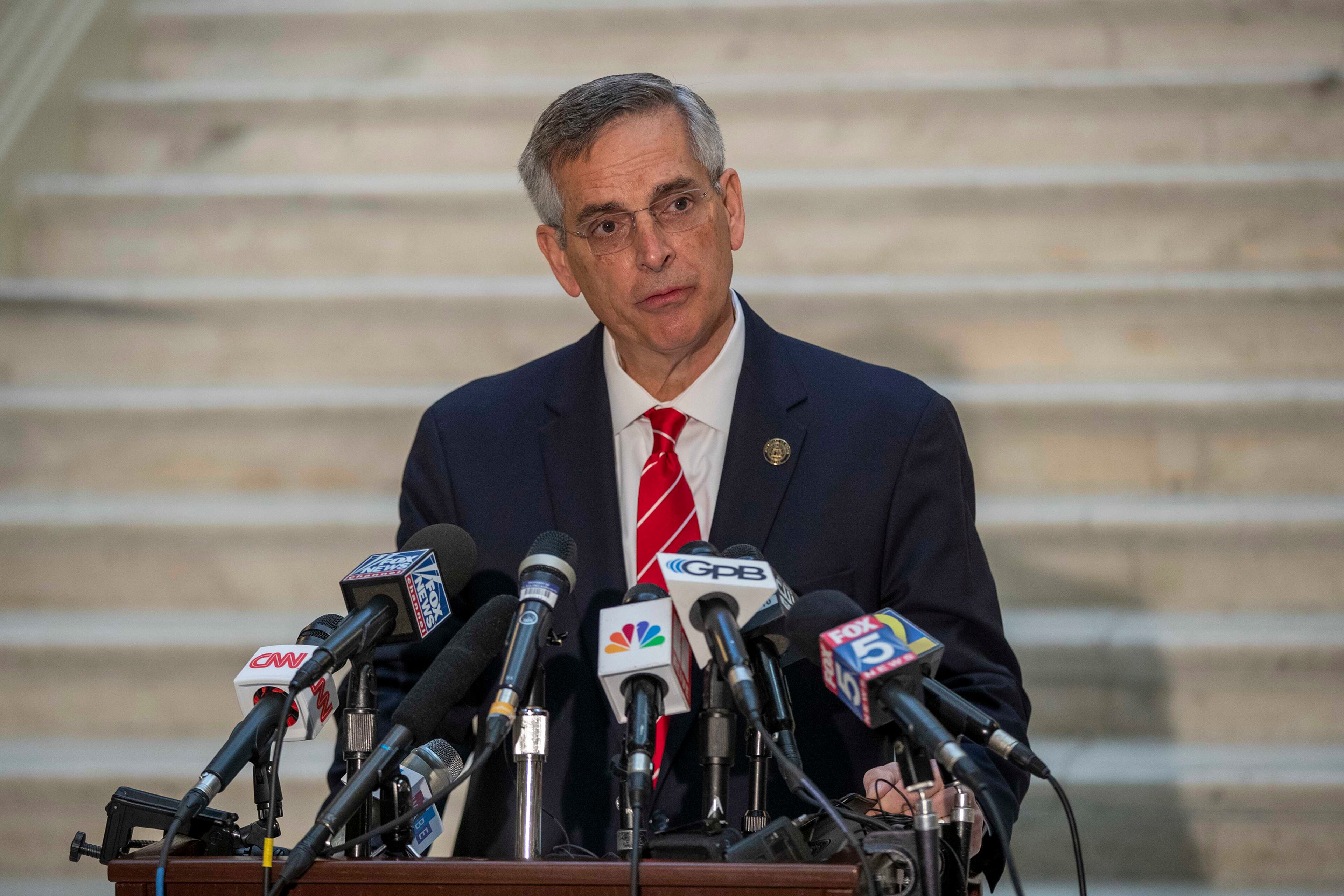Capitol Recap: Georgia lawmakers back new way for in-session donations

Special interests gain a new way to give
Special interests could soon have a new opportunity to make donations to leading figures in Georgia government.
Senate Bill 221, which gained final approval in the General Assembly this past week, would create a new category of fundraising options, called leadership committees, that could raise unlimited amounts of money for campaigning. Those with the power to form these committees would be the governor and lieutenant governor, a party’s nominee for either of those positions, and House and Senate leaders for both the Republican and Democratic parties.
A key element is timing.
These leadership committees would be able to raise money during the legislative session, when tax breaks are discussed to help industries, rules are mulled to regulate businesses and budgets are set to fund contracts.
Legislators have been unable to accept campaign contributions since the early 1990s.
But special interests have still had ways to show they care.
Both political parties accept contributions during sessions, and big money has often come from people with a lot at stake in what happens down at the Capitol.
A review of campaign contribution reports by The Atlanta Journal-Constitution showed the House and Senate GOP caucus funds — which are controlled by House and Senate leadership — reported receiving more than $300,000 in the past five years during legislative sessions.
Senate Rules Chairman Jeff Mullis, a Republican from Chickamauga, said the leadership committees would have to disclose their donors, fighting what’s called “dark money,” funds that hide the identity of the contributor.
“This bill will shine the light on a cancer on our democracy,” Mullis said.
Critics, however, say that light will mostly pass through a filter. Political nonprofits would still be able to take money without identifying the donors and then give that money to leadership committees.
SB 221 progressed through the General Assembly largely on party-line votes, with Mullis’ fellow Republicans supporting it. But the leadership committees may be of more use to Democratic caucuses, which in recent years have not had the same kind of political action committees and independent committees to raise money that Republicans use.
Lobbyists and their special-interest clients may be the least happy with SB 221, Sen. Nan Orrock suggested.
After all, if a powerful member of the Legislature is creating a leadership committee, he or she is probably expecting somebody to contribute to it.
“It’s one more way to gouge money from lobbyists,” said Orrock, a Democrat from Atlanta. “It’s a bald-faced effort to get more money into politics.”

Sex harassment complaint follows comments on House floor
It turns out that, despite the effort everybody makes to get there, the Georgia Capitol isn’t always a great place to work, especially for women.
Fourteen lawmakers — mostly women and all Democrats — announced this past week that they were filing a sexual harassment complaint with the House Ethics Committee.
The move followed a comment made during a debate involving sedation and outpatient surgery by state Rep. Kasey Carpenter that somehow drifted onto the subject of Cardi B and implants of a strategic nature.
A backlash quickly followed.
“This is the Georgia State Capitol, not a men’s locker room, not a frat house and not a playground,” said state Rep. Jasmine Clark, D-Lilburn. “This inappropriate speech during official House business and the business of this state creates an uncomfortable and even hostile environment.”
Carpenter apologized the next day in the House.
“Most of you know I enjoy a good laugh and love to keep things light in such a tense society,” he said. “I can assure you I never wanted to come across that way, and I apologize if my words offended you in any way, and I hope you can find it in your heart to forgive me.”
Carpenter may have lit the match, but several other members have been stacking firewood.
Many women in the Legislature, who now make up nearly one-third of the Legislature, described a culture of misogynistic “jokes” and comments they have been forced to endure. Some debates have included off-color talk about sex in nursing homes and comments about women’s looks.
“It’s not a comfortable place to be a woman,” said state Sen. Jen Jordan, D-Atlanta. “But I will say it’s gotten significantly better because we’ve elected more women. The more women you elect, it gets better, because it’s almost like we’re here to call them out and say ‘that’s not appropriate.’ "
All lawmakers are required to complete sexual harassment training, but female legislators said some of their colleagues still aren’t getting the message because they’re still hearing inappropriate comments. The General Assembly’s sexual harassment policy prohibits verbal harassment, including “sexually related comments or jokes.”

Official vows fight over Georgia Medicaid waiver
Georgia officials are prepared to fight if the Biden administration rescinds the approval the state received last year for Gov. Brian Kemp’s Medicaid waiver plan.
The Trump administration authorized the plan, which would require low-income adults to put 80 hours a month into a job, an education program, a volunteer organization or another qualifying activity.
But in February, the federal Centers for Medicare and Medicaid Services criticized the policies ’'that condition health care coverage on meeting work or other community engagement requirements.’'
The letter pointed to uncertainties related to the COVID-19 pandemic that could make it difficult for recipients to satisfy the requirements for eligibility — not just the availability of job training, but also access to transportation and affordable child care.
Georgia had those concerns covered, state Commissioner of Community Health Frank Berry wrote in his own letter to CMS officials, saying officials had agreed to allow virus-related exceptions to the requirements for coverage.
The Biden administration is not alone in questioning the work requirements. Federal courts have blocked similar restrictions in Arkansas, Kentucky and elsewhere, and this month the U.S. Supreme Court is expected to take up a related case.
Berry wrote that if the feds revoke the Medicaid waiver plan, “Georgia will challenge the decision,” saying revocation would be “an arbitrary and unlawful bait-and-switch.”
The commissioner called the work and other eligibility requirements “core to the waiver.”
Georgia officials, he wrote, “worked with CMS in good faith to adopt an innovative program to deliver coverage to a new category of individuals while helping them build important skills and become more independent and self-reliant.’'
Berry’s letter comes as the federal government, through the $1.9 trillion COVID-19 relief stimulus, dangles new incentives for states to pursue a much larger enrollment increase in Medicaid through a regular expansion of the program under the Affordable Care Act.
Georgia, where about 2 million low-income and disabled residents receive coverage under Medicaid, is one of 12 states that so far have chosen not to expand the health care program through the ACA.
But the newly approved COVID-19 relief plan increased the incentives for those states to expand Medicaid at this point by bumping up their federal matching rate for the health care program for two years by 5 percentage points. For Georgia, that would amount to $700 million, according to the Kaiser Family Foundation.
Such an expansion would make 480,000 to 600,000 more people in the state eligible for Medicaid coverage, said Laura Colbert, the executive director of Georgians for a Healthy Future, which supports expansion.
Kemp’s waiver plan, as outlined now, wouldn’t go nearly that far. It would cost $75 million for the first year and cover just 31,000 low-income adults, according to Colbert’s group. The federal match under the Kemp waiver plan would be the regular 67% of the cost.

Voting access boasts vanish from secretary of state email
The secretary of state’s office used to brag about voting access in Georgia.
At the end of every email, it tacked on this statement:
“Georgia is recognized as a national leader in elections. It was the first state in the country to implement the trifecta of automatic voter registration, at least 16 days of early voting (which has been called the ‘gold standard’), and no-excuse absentee voting. Georgia continues to set records for voter turnout and election participation, seeing the largest increase in average turnout of any other state in the 2018 midterm election and record turnout in 2020, with over 1.3 million absentee by mail voters and over 3.6 million in-person voters utilizing Georgia’s new, secure, paper ballot voting system.”
The note’s gone now, and a dozen bills still alive this session in the General Assembly could end some of the policies that fed its boasts. The Senate has passed a bill to end no-excuse absentee voting, and the House put its OK on legislation to limit Sunday voting.
Another bill that didn’t advance targeted the automatic registration of voters at driver’s license offices.
Deputy Secretary of State Jordan Fuchs says the office is “working on new language to highlight the successes of the new voting system used in 2020” that allows paper audits to check the results of elections.
State Rep. Bee Nguyen, D-Atlanta, said Secretary of State Brad Raffensperger and his office are sending a mixed message.
Raffensperger has supported the elimination of no-excuse absentee voting. He hasn’t taken a position on most other voting bills besides backing stronger voter ID requirements.
“As far as I can tell, the secretary of state has been playing both sides,” Nguyen said. “On the one hand, the secretary of state has been very forthcoming about no voter fraud in the elections. On the other hand, they’re supporting some aspects of the voter suppressive bills.”
COVID-19 stimulus a source of celebration, condemnation
President Joe Biden put Atlanta on his itinerary to celebrate passage of the $1.9 trillion coronavirus relief package.
Gov. Brian Kemp went to Savannah to blast it.
The governor considers the $8 billion in direct aid that Georgia state and local governments will receive through what they call the American Rescue Plan as punishment.
“States that needed bailouts are getting more money than Georgians are getting,” Kemp said. “I appreciate the relief, but I wish it was fair and equitable to our citizens.”
Kemp had also opposed a provision that the U.S. Senate added late in the process that would bar states from using the relief money — directly or indirectly — to provide tax cuts.
For a while, that provision threw in doubt a pair of tax cuts that were in Georgia’s legislative pipeline. One, which gained final approval in the state Legislature late this past week, would provide a small state income tax cut for those who use the standard deduction when they file. The other would increase a tax credit for those who adopt children out of foster care. That bill passed on the same day.
Both were in the works long before the COVID-19 recovery plan won approval, but Republicans said the federal measure could be interpreted in a way that would block the tax cuts.
The Treasury Department then cleared up the matter, saying the tax cuts would be OK under the relief plan.

Stat of the Week: 1.9 million HOPE scholarship recipients
The HOPE scholarship has now covered most of the in-state tuition for 1.9 million Georgians who maintained a “B” average.
They may now have a way to honor the man who made that possible.
The General Assembly gave final approval this past week to place either inside the Capitol or on its grounds a statue of Zell Miller, the former governor and U.S. senator who created the scholarship program in 1993.
Under Senate Bill 140, which is now headed to Gov. Brian Kemp for his signature, the statue will be funded through private donations. If most HOPE scholarship recipients kicked in a buck, that would probably go a long way toward covering the tab.



